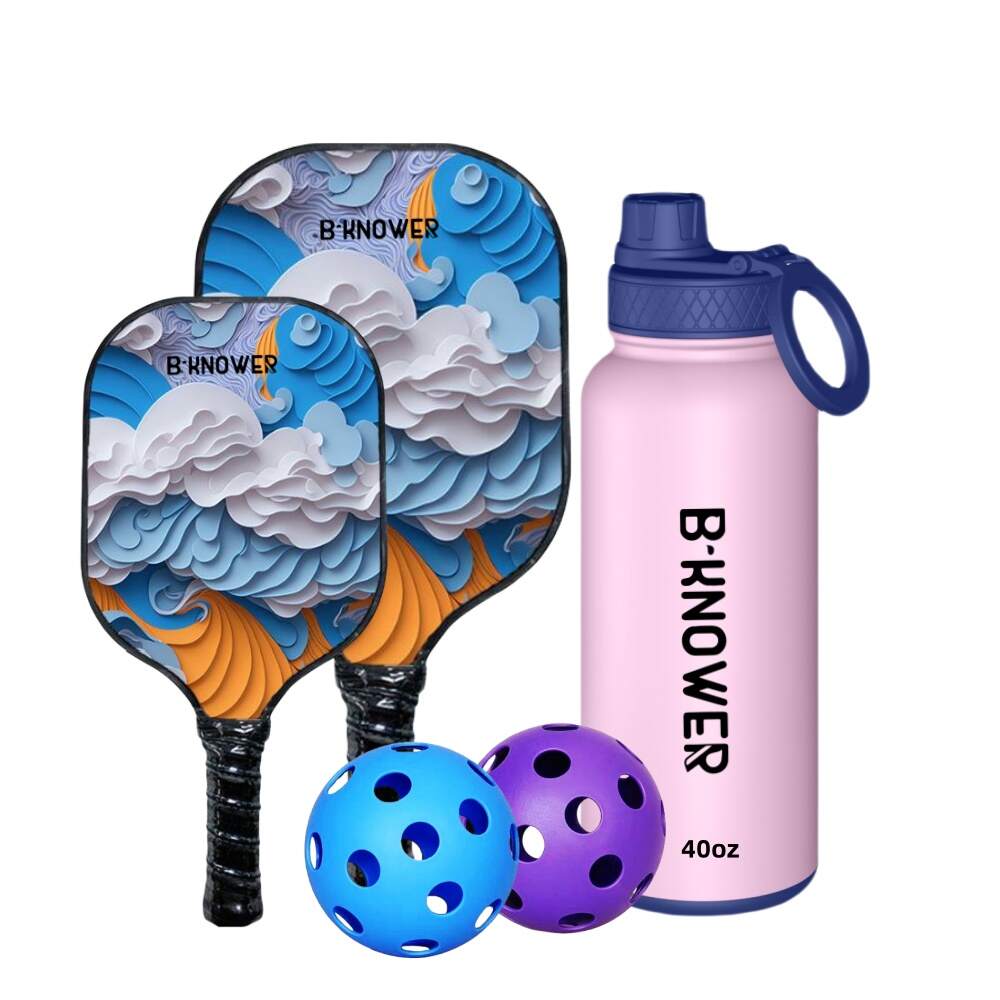

Pickleball, a dynamic and engaging sport that combines elements of tennis, badminton, and table tennis, has seen a remarkable journey since its inception. This sport's unique blend of excitement, accessibility, and inclusivity has made it a beloved activity worldwide. Here's a closer look at the fascinating history of pickleball's development.
Origins and Early Years
The origins of pickleball are traced back to the summer of 1965 in Bainbridge Island, Washington. It was created by three friends: Joel Pritchard, Bill Bell, and Barney McCallum. The trio sought a fun and leisurely activity to play on their badminton court during a family gathering. They initially used a whiffle ball and ping-pong paddles, modifying the equipment as they played to create a more enjoyable experience.
The name "pickleball" is said to have been coined by McCallum, who combined parts of the names of the initial toys used: "pickle" (from "wiffle ball," which was branded as "Pluto Pickle" at that time) and "ball." Thus, the sport was named pickleball, and it quickly gained popularity among friends and neighbors.
Spread and Growth
As pickleball's popularity grew, it began to spread beyond Bainbridge Island. The sport's simplicity and adaptability made it easy to introduce to new audiences. By the 1970s, pickleball clubs and courts started appearing in various parts of the United States, and the first pickleball tournaments were organized.
The growth of pickleball was further fueled by the establishment of the United States Pickleball Association (USPA) in 1984. The USPA played a crucial role in standardizing the rules of the game, organizing competitions, and promoting the sport. This led to an increase in pickleball's visibility and participation levels.
International Expansion
In the late 20th and early 21st centuries, pickleball began to expand internationally. The sport's appeal crossed borders, with countries like Canada, Australia, and the United Kingdom embracing pickleball and establishing their own pickleball associations and tournaments.
The International Pickleball Federation (IPF) was formed in 2012 to oversee the global development of pickleball. The IPF works closely with national pickleball associations to promote the sport, organize international competitions, and ensure the uniformity of rules and regulations.
Modern Popularity
Today, pickleball is enjoying unprecedented popularity. It has become a favorite pastime for people of all ages and skill levels, from recreational players to competitive athletes. The sport's accessibility, combined with its social and fitness benefits, has made it a hit with families, retirees, and fitness enthusiasts alike.
Pickleball courts can now be found in parks, schools, community centers, and even private homes. The sport's growth has also led to an increase in pickleball-specific equipment and accessories, as well as a thriving industry of pickleball coaching and training.
Looking Ahead
As pickleball continues to grow and evolve, it is poised to become an even more prominent sport in the coming years. With its unique blend of fun, fitness, and social interaction, pickleball is well-positioned to attract new players and maintain the loyalty of its existing fan base.
The future of pickleball is bright, with exciting prospects for international competitions, new technologies, and innovative ways to enjoy the game. Whether you're a seasoned pickleball player or just starting out, there's never been a better time to get involved in this thrilling and inclusive sport.
In conclusion, the history of pickleball's development is a testament to the power of creativity, community, and the pursuit of fun. From its humble beginnings on a badminton court in Bainbridge Island to its current status as a global sport, pickleball has come a long way and continues to inspire and entertain people worldwide.
Email cannot be empty
Password cannot be empty
Email format error
Email cannot be empty
Email already exists
6-20 characters(letters plus numbers only)
The password is inconsistent
Email format error
Email cannot be empty
Email does not exist
6-20 characters(letters plus numbers only)
The password is inconsistent